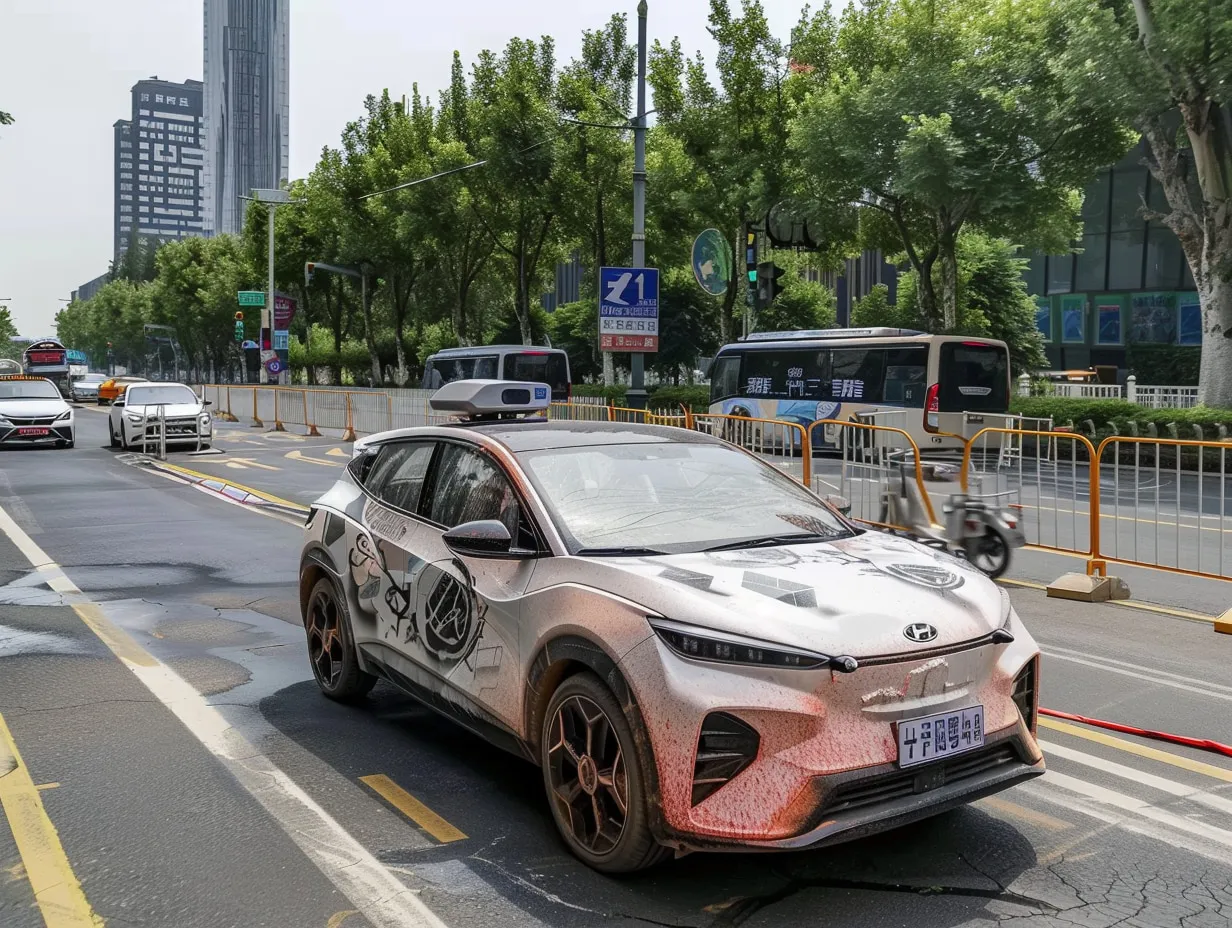In a recent incident in Wuhan, China, a driverless car operated by tech giant Baidu collided with a pedestrian who was crossing the road during a green light. In its statement to Chinese media outlets, Baidu confirmed that the car started moving when it obeyed traffic signals and had a low-impact accident with the pedestrian, who was taken to the hospital for examination.
Also Read: China leads in generative AI adoption despite global competition
Fortunately, there were no fatalities or major injuries, and the physical examination showed that everybody had no visible injuries. This accident has revealed some of the challenges that are likely to be encountered when using autonomous driving systems.
Public reacts to the accident on social media
Pictures from the scene shared across various social media platforms show the car with no driver having rooftop sensors and a man sitting on the ground beside the car. Most of the comments on different social media accounts were in support of Baidu, stating that the pedestrian was in the wrong for jaywalking. The Shanghai Daily highlighted that the general public opinion remains quite clear that traffic laws should be obeyed, including in cases of self-driving cars.
According to Yicai, a Chinese financial news outlet, experts pointed out that self-driving systems struggle with complicated and unconventional traffic situations. Such obstacles include scenarios where vehicles and pedestrians collide or disregard traffic rules, which presents problems for technologies aimed at optimizing the safety and performance of the road.
Baidu reports increasing usage of fully autonomous vehicles
Baidu, a leading company in China’s autonomous driving market, has one of the largest robotaxi fleets in Wuhan. The Apollo Go service which has now been opened in several large cities of China such as Beijing, Shenzhen and Chongqing is a big step towards incorporating autonomous driving in transportation. Recently, the company presented the sixth generation of driverless taxis with the goal of cutting down the costs of production and increasing the availability of self-driving cars.
Also Read: Anthropic CEO says cost to train AI could rise to $100B in the next three years
Baidu founder Robin Li stated earlier that in the first quarter, more than 55% of Apollo Go taxi orders in Wuhan were for fully autonomous vehicles, which increased to 70% in April. Li noted that this proportion may rise to 100% in the following months.
The incident in Wuhan has reignited discussions on the regulatory frameworks and safety protocols surrounding autonomous vehicles. Recently, speaking at the World Artificial Intelligence Conference (WAIC) in Shanghai, Robin Li criticized the emphasis on foundational models and urged the development of real-world AI applications. He stressed that the company’s AI solutions should bring real value across different sectors, with logistics and creative writing as the first beneficiaries of the AI developments.
Cryptopolitan Reporting by Brenda Kanana





